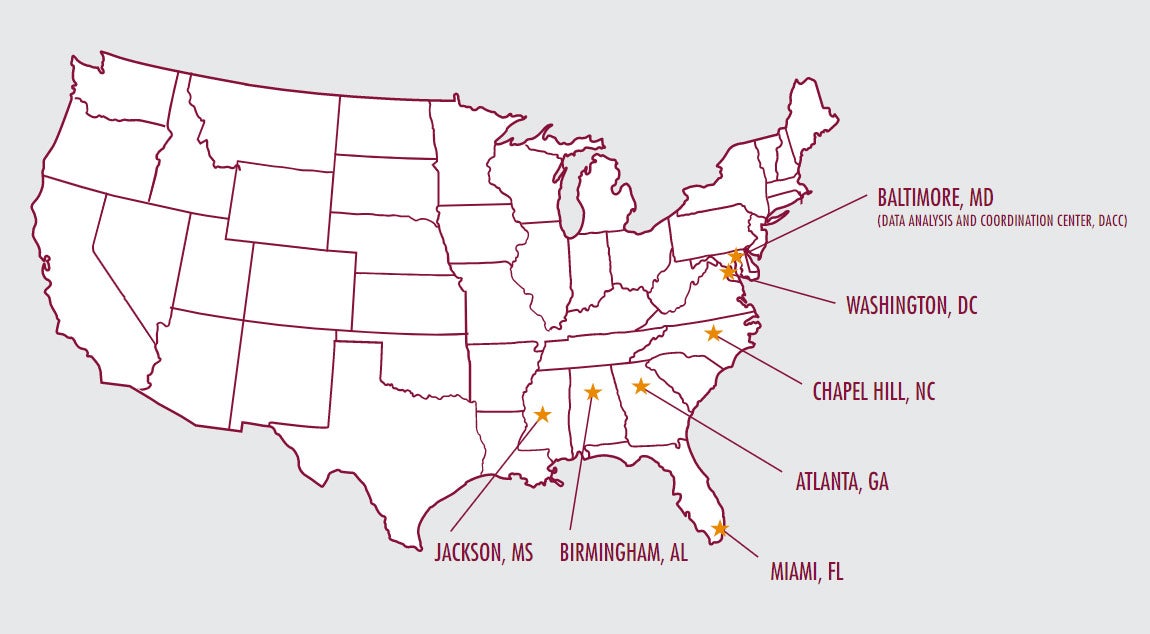STAR Study

The Study of Treatment and Reproductive Outcomes in Women (STAR) cohort seeks to answer questions related to the effects of HIV infection and HIV-related medical conditions within women of reproductive age. It builds on the work of the Women’s Interagency HIV Study (WIHS), which was developed in 1993 and comprises almost 4,000 women living with HIV (WLWH) or women at-risk for HIV infection. Recently, WIHS transitioned and combined with the Multicenter AIDS Cohort Study (MACS), which is a cohort of gay and bisexual men, to form the MACS/WIHS Combined Cohort Study (MWCCS). Utilizing the backbone of MWCCS, STAR was developed to obtain information on reproductive age WLWH and those at risk for HIV infection, focusing on the Southern region of the US.
The overall objectives of this study are:
- to enroll and retain a cohort of reproductive-aged women with HIV and women at high risk for HIV to create a platform for multi- and cross-disciplinary research that can be used to investigate key issues longitudinally across women’s reproductive lives using rich clinical, behavioral, and laboratory data.
- to use novel scientific approaches to investigate the role of key social determinants of health, depression, reproductive health, and oral health on critical HIV and pregnancy outcomes across the reproductive lifespan. The long-term goal is to utilize STAR science to develop strategies to improve the health of women with HIV, their children, and their communities.
STAR study sites will recruit and retain 2,000 reproductive-age women who are HIV-positive and HIV-negative.
- Atlanta, GA
- Birmingham, AL/Jackson, MS
- Chapel Hill, NC
- Miami, FL
- Washington, DC
STAR clinical research visits will collect socio-behavioral, clinical, and outcome data as well as biospecimens (i.e. blood, urine, hair, and oral, and genital specimens) to promote multidisciplinary HIV/AIDS research. The cohort’s research efforts seek to respond to the distinctive health needs of reproductive-age women living with HIV. The STAR cohort has the potential to ultimately improve the health of young WLWH, optimize the gains of HIV treatments, and contribute to the ending of the HIV epidemic in the United States.

